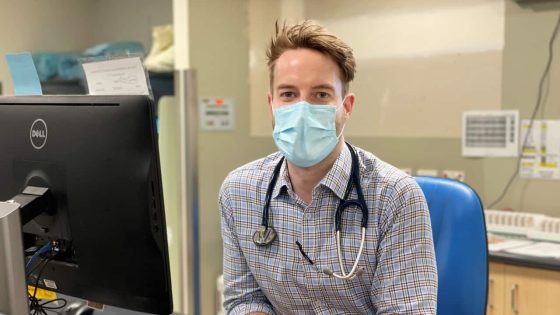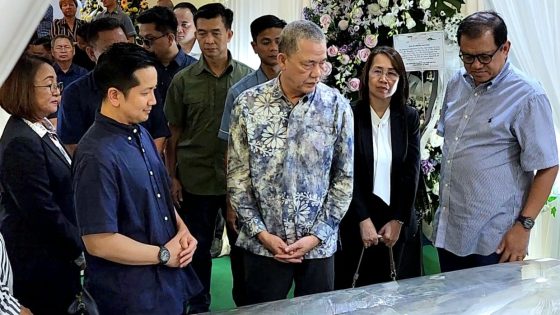One moment, 24-year-old economics graduate Geoff Lester was refereeing a social basketball game in Brisbane with friends while making plans to move to London to become a “big banker wanker”.
Two hours later, he was going under the knife for 12 hours of open heart surgery to fix a catastrophic aortic dissection that could have killed him.
He nearly didn’t go to the hospital with the mild symptoms of dizziness and a tingly arm and feeling “a bit odd” — he was young, fit and healthy after all.
But after dropping a friend home right next to a hospital, he went inside for some reassurance.
As he arrived at the triage desk he collapsed with a pain “that felt like I was being torn in two”.
His aorta — the main artery that carries blood from the heart — had ruptured.
“If I’d just driven home instead … (I’d be) dead,” he reflected.
Only 50 per cent of people who experience aortic dissection will make it to hospital.
Of those who do make it, 25 per cent won’t survive, or if they do they could have a number of non-functioning limbs or organs.
And from the onset of symptoms, with every passing hour, there is a 2 per cent increase in the risk of death.
He doesn’t just know these statistics because he was an attentive patient. Lester is now a trained cardiologist.
As he woke up from his lengthy procedure — his surgeon was at the end of a 12-hour shift when he began the operation — Lester made good on a deal he had struck.
“When you’re faced with death, you start bargaining: ‘Give me this chance, I promise I’ll use it,'” he said.
“Let me survive and I promise I’ll do good in the world.”
When you’re faced with death, you start bargaining: ‘Give me this chance, I promise I’ll use it.’
Geoff Lester
He was still recovering in hospital when he asked his parents to bring in textbooks so he could study for the entrance exam to medical school with a “laser-like focus”.
“I needed to find out how this happened to me and I needed to help others who this might happen to and stop this happening to other people,” he said.
Since 2009, Lester has been simultaneously training in cardiology and general medicine with an aim to become one of Victoria’s only specialist cardiovascular and general physicians.
He recently collated Australian-first research into the prevalence and economic cost of this disease while completing his most recent master’s degree in public health.
And he has done this while also continuing to deal with his own health woes — a second open heart surgery 10 weeks after the first to deal with another rupture, two strokes, an infected heart valve and two more open heart surgeries due to aneurysms of the coronary artery.
Just three weeks ago, he had holes drilled into his head to release pressure from a brain bleed.
He’ll be back at work on Monday. “I don’t waste a moment,” Lester explained.
“It’s given me drive, it’s given me a purpose. Many people go through life never finding their purpose … their reason to get up every day.
It’s given me drive, it’s given me a purpose. Many people go through life never finding their purpose … their reason to get up every day.
Geoff Lester
Lester says part of the reason he suffered the aortic dissection is a genetic condition which leads to weak arteries that no one in his family knew about.
One of the silver linings of his experience is that it prompted his family members to get tested themselves, and it was then that his brother discovered he carried the same gene.
For Heart Week 2024, Australian Heart Foundation ambassador Lester has joined calls for people to get their ticker checked out to avoid the unthinkable happening to them or their loved ones.
More than 40,000 Australians die from cardiovascular disease each year with nearly 600,000 hospitalised for it, the Heart Foundation says.
A recent survey it conducted on 1,000 Australians between 45 and 74 found nearly half did not know their family history, despite it being a major risk factor for heart attack or stroke.
The first step people could take would be to use the Heart Foundation’s three-minute online test which will calculate your heart age.



